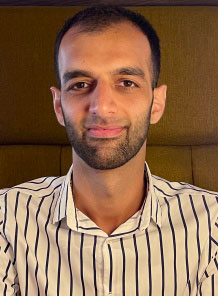Umar Toseeb, Professor, Department of Education
Umar joined the University of York in 2018 after holding several positions at various Universities across the UK. He currently leads the Child and Adolescent Neurodevelopmental Diversity (CANDY) Research Group in the Department of Education.

His group is interested in the development of young people with and without special educational needs (eg autism, developmental language disorder), with a particular focus on mental health.
Primarily, his research fits statistical models to data from existing datasets (eg cohort studies, administrative data) to understand genetic and environmental influences on special educational needs and mental health.
email: umar.toseeb
Our 60-second interview with Umar:
What do you do in the field of mental health?
I'm interested in the mental health of children with special educational needs. Specifically, to understand the genetic and environmental influences on the development of mental health from childhood to adolescence, and beyond. I do this by analysing existing data from the children who have been followed from birth.
What do you find most rewarding and inspiring in this work?
It's really nice to hear from people who have learnt about/used my research. I've had emails from students at other Universities who have read one of my papers as part of their course and speech and language therapists who have used some of my findings in their practice.
What is the most challenging or complicated aspect of this work?
Findings of genetic research can be perceived in a certain way. Therefore, communicating these findings sensitively, carefully explaining what they do and do not mean is always a challenge.
What impact do you hope your work is having- or can potentially have?
I like to think my work benefits some of the most vulnerable children and families in society. Most of this is indirectly. For example, my teaching is very much informed by my research. The students in my class go on to work with children with special educational needs in various settings.
Could you share with us one piece of advice that you follow for your own mental health?
Surround yourself with people who think you're awesome; they'll do wonders for your mental health.